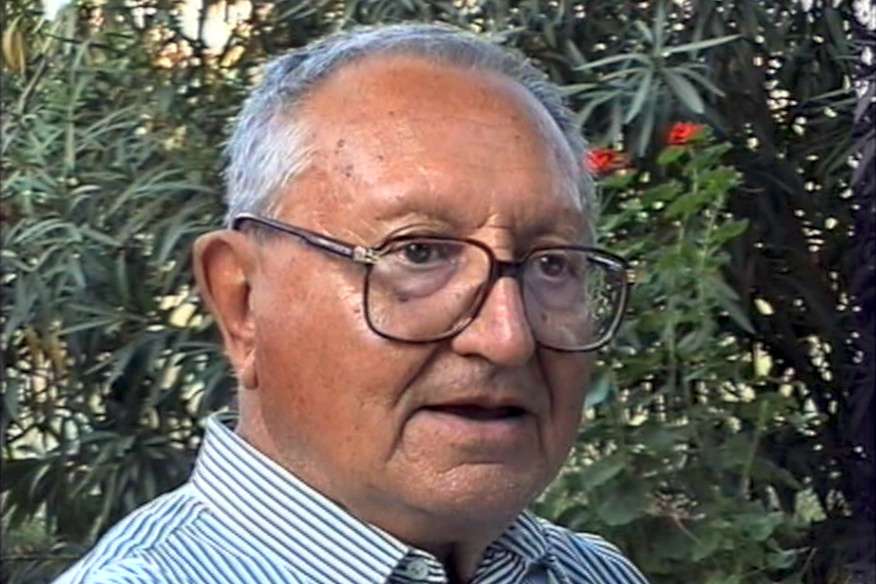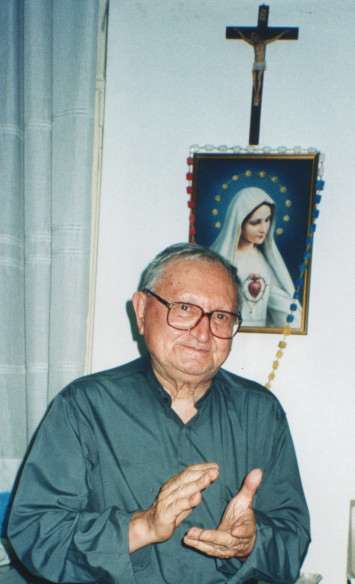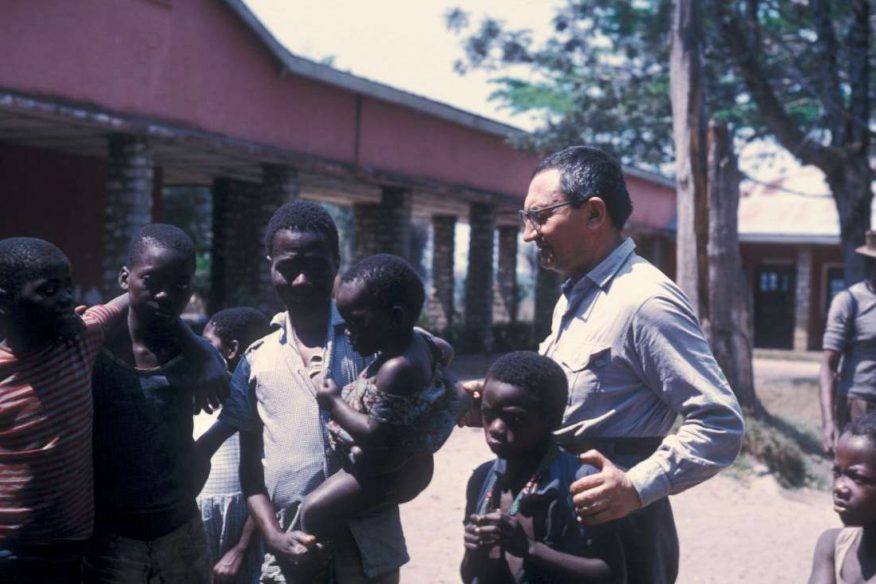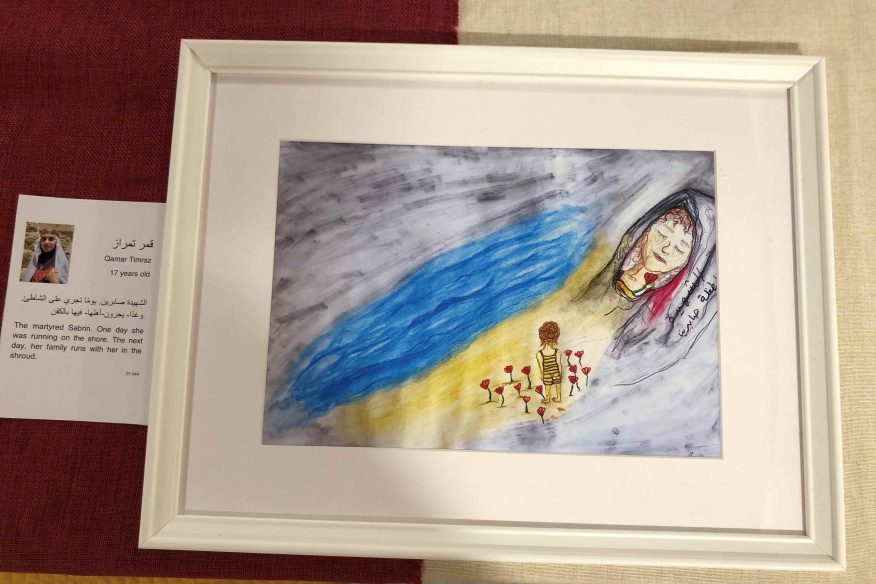Fr. Puggioni, the beatification cause has begun in Cagliari

The archbishop of Cagliari, Monsignor Giuseppe Baturi, has appointed the postulator who will oversee the process of the cause of beatification of Fr. Giovanni Puggioni. Fr. Guglielmo Pireddu, Superior of the Community of Cagliari and professor of Church history, describes this Jesuit’s holiness as “an authentic witness of the mercy and goodness of Christ”.
Why did the Archbishop of Cagliari, Monsignor Giuseppe Baturi, “consider it opportune to initiate the diocesan cause for the beatification and canonization of the servant of God Giovanni Puggioni SJ”?
The diocesan phase of the cause is in progress and the cause should initiate by the end of the current year.
“Fr. Puggioni for over fifty years has travelled through the whole length and breadth of the entire island to carry out the missions he was assigned, as a vocation promoter, as Head of the LMS and then of Operation Africa, but above all as an apostle of the Sacred Heart, creating dozens of prayer groups, giving rise to a wave of religious vocations, primarily female” Fr. Pireddu explains. But, that’s not all, “His apostolic versatility and undoubtedly” charismatic “personality made him an authentic witness of the mercy and goodness of Christ, which for him was not just an abstract theological concept, but a reality that he experienced personally. And since we are talking about tens of thousands of people who have experienced the intimacy of God, thanks to this Jesuit, it does not surprise me that Bishop Baturi has agreed to explore the possibilities of a diocesan inquiry”.

Who was Fr. Puggioni? What are the traits of holiness in his life?
I would say a “Man of God“, and I would have already answered the question totally. But leaving out the ordinary virtues, about which I would write a thesis and limiting myself to the most manifest heroic virtues, I would say:
– an extraordinary capacity for charity and proximity with the world of suffering, the sick, above all the lepers (he rallied through the whole island in the seventies regarding some achievements in favour of the lepers of the former Zaire).
– an enormous self-denial in carrying out the duties of confessor and spiritual director. Thanks to his kindness, his smile, his serenity, he has allowed thousands of people (round down) to become aware of the presence of God in their lives.
– an incredible fortress, yet throughout his life both those close to him as well as outsiders continually created obstacles for him. He never gave up, but continued on his way, also showing discreet skills as a tightrope walker to avoid dangers. One of his favourite mottos was: “When all goes wrong, that’s okay then!” Personally, I still have some difficulty believing this today …
– a teacher of prayer. In this case also, I am not referring to theoretical teaching; you learned prayer by praying beside him (seeing it in action, not hearing it); in different ways, with perseverance and constancy. Thousands of young people heard daily mass celebrated by him and became authentic Christians. I would say that his example was followed, he was trusted, because the example he gave was sincere.
– a person who inspires hope. You never went out empty-handed from his office in via Ospedale 8. Your view of life changed, for the better of course. You knew that you were not alone, that God was by your side and that Our Lady would accompany you. One particular episode remained symbolic, when young people from his country of origin had formed a sect, and two suicides had already taken place. The mothers of the remaining boys took them to Cagliari to Fr. Giovanni. They all had a personal meeting with him, and left with the rosary in their pocket, and, of course, the chain of suicides was severed.
– from the outside he could be mistakenly taken as one who spreads simple devotions, but the faith of Fr. Giovanni was something else. Today on his tombstone the inscription “Apostle of the hearts of Jesus and Mary” stands out. This sentence describes the whole essence of his interior life; primarily because he lived it, and secondly because he did not keep the treasure hidden but passed it on faithfully.
– Then I will not say much about his ability for intercessory prayer to resolve conditions of illness (already while still alive). If the cause continues, it will be up to the authority of the Church to explore this episode.
How was he a particular witness as a Jesuit?
He experienced very much the unity of the body; that he was part of a single body and that there were particular bonds between companions. He was not naive; he did not hide the existing divisions. But his gaze went beyond and that allowed him to move forward. The story of his vocation would be a bit particular; but, in fact, he was proud to belong to the least Society of Jesus and one could notice it.
And what was his specific testimony to the Society, to Jesuits?
He was captivated by the spirituality of the Sacred Heart. Some of the companions regarded him as exaggeratedly so. He was particularly interested in the text of Fr. Arrupe “In him is our only hope“. In fact, he dedicated his whole life to the spread of this spirituality.
However, honestly, if I had to say in what way he is a witness to us today, I would say: the ability to dream big, to sail out of the small harbour, and to venture out, even ready to pay a personal price, that of misunderstanding and struggles, in order to work for the Kingdom of God and not for our small earthly kingdom. There was no limit to his dreams of big projects. Humanly speaking, his African achievements (schools, hospitals, wells, aqueducts and more) were impossible (editor’s note: below a photo in the leper colony of Mosango – RD Congo). His obstinacy (a gentle translation of Sardinian stubbornness) made him realize the unthinkable.
What are the characteristics that stood out in his pastoral service?
Total availability, the great gifts of self-denial and sacrifice. He was an excellent communicator and kept in touch for years. The morning was dedicated to personal prayer and to more technical or routine matters. Then, from the early afternoon, he would meet people indefinitely until he finished all his appointments, even staying up at night. When he met someone for the first time, he put him at ease by making him feel important: not a tangle of knots to untie, but a “promising” person.
Of course, I would highlight proximity, hospitality and the image of the fatherhood of God.
The formation he gave was round the clock. Obviously, there was catechetics, the liturgy was very important, but also the social dimension of the life of prayer. Everything revolved around the Eucharistic life, or rather its quality. Everything else was grafted onto this pivot. We wouldn’t be able to understand Fr. Giovanni if we omitted the role of Eucharistic Adoration and the Rosary.

What is Fr. Puggioni’s message to a Church in its synodal phase?
While admitting that he had a discreet “directive” ability, I must admit that Fr. Puggioni was also a great motivator, able to convey his insights and make them his own. Since the time of the LMS he managed to capture the attention of many students because he made them feel personally responsible for what was being built together.
The organization of the meetings was open, although Fr. Giovanni certainly had a program in mind, but then its implementation was created through open discussion with the young people. He transformed the voluntary organization into a non-profit organization, thus transferring the power of decision-making to the Board of Directors; and, with regards to the Marian Movement he created a very unusual governing body (nicely defined as the “Group of the G9), consisting of himself and 8 other boys, not chosen by him, but democratically elected by the group of animators. I would say, a good example of dialogue and synodality. Of course, I can’t say that this was his main characteristic, but in some ways, he was ahead of his time.
Who was he in reality?
In conclusione p. Puggioni fu un gesuita autentico, nell’accezione della nostra Formula Instituti; completamente dedito alla salvezza delle anime, interamente orientato sulla maggior gloria di Dio (annusava subito laddove vi fossero altre motivazioni terrene e le scansava). Era una persona affidata a Cristo. Dalle sue agende (quasi una sessantina) traspare che per lui la preghiera non era una pratica quotidiana da assolvere prima di tuffarsi nel lavoro, ma un tempo di ascolto della volontà di Dio, che percepiva, e che poi cercava di attuare, non da solo, ma con l’aiuto di quanti si facevano suoi compagni di cammino.
